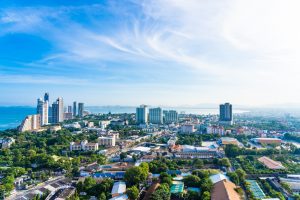When we hear the word ‘sustainable’ and ‘economy,’ the two don’t seem to gel together perfectly. It’s hard to believe and imagine when the environment and the economy are finally collaborating to save the environment and prevent global warming well below the 2 C threshold.
Economy, according to Greek means “household management” or the word “oikos” for house and “nomos” for “custom” or “law.” Economics determines the production, distribution and consumption services as well as to improve the living conditions of people in their everyday life.
A sustainable economy is to produce something with the least amount of resource use and environmental damage. In order to be truly sustainable the demand for natural resources or an ecological footprint must be less than the nature’s renewable supply or bio-capacity.
As much as we tend to believe our well-being is driven by economic factors, this is false. The economy is only a part of the society with a fundamental purpose to organise resources; mainly on labour and raw materials to produce goods and services for the benefit of man-kind.
However, through the mentality of a businessman, this could be all trivial. There’s no denying that modern industrialised economies over-produce. Although the average of satisfaction has not increased half-a-century, the production of any sector has been double.

The drive for economic growth increases a person’s standard of living. Once the economy has reached a certain goal, any further progress is good for mankind, but not for the environment. Higher productivity is the goal for every country’s economy. This will lead to wasteful, harmful, and bad production.
Continuous reinvestment of profits leads to the growth of production. This is compounding because the growth overlaps the former growth. This is also simple to infer where wealth tends to be unequal.
External costs are then imposed from a third party when goods and services are produced and consumed. These are effectively subsidized by a society. Both former and latter should internalize the costs and pass them on the direct consumers.
Environmental constraints in developing countries are characterised by pressures of population growth, inefficient technology, low per capita income, and poor health sector. Hence the emphasis for progress or growth on any developing country would overcome the environment.
For any developing country, economic growth results in increasing wealth, income, higher standard of living, and improved health care. However, these come at a price of the environment through the use of fossil fuels, synthetics, and raw materials.

For every problem, there is a solution. The need for a strategic approach to benefit both sides is to acknowledge the problem at hand while also fostering good conservation values. Sustainable Development is the “Development that meets the needs of the present without compromising the ability of future generations to meet their own needs” (World Commission on Environment and Development, 1987).
The Sustainable Development is a concept where:
- Meeting the requirements for a better quality life.
- Based on democracy.
- Promotes employment in the economy through the education, technology sector, etc.
In order to achieve sustainability, we must find a balance. By fostering through Sustainable Development Poverty alleviation, Gender equality, Capacity building, Clean technology, Clear institutional framework, Economic growth and development, Sustained biodiversity (protection & conservation of ecological services), this will help a nation to develop while also conserving the environment.



